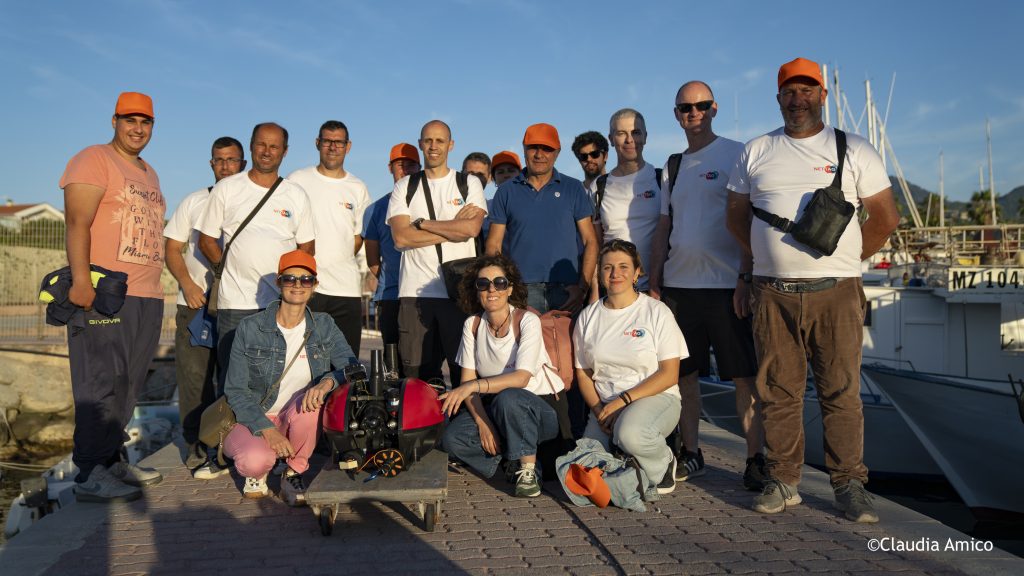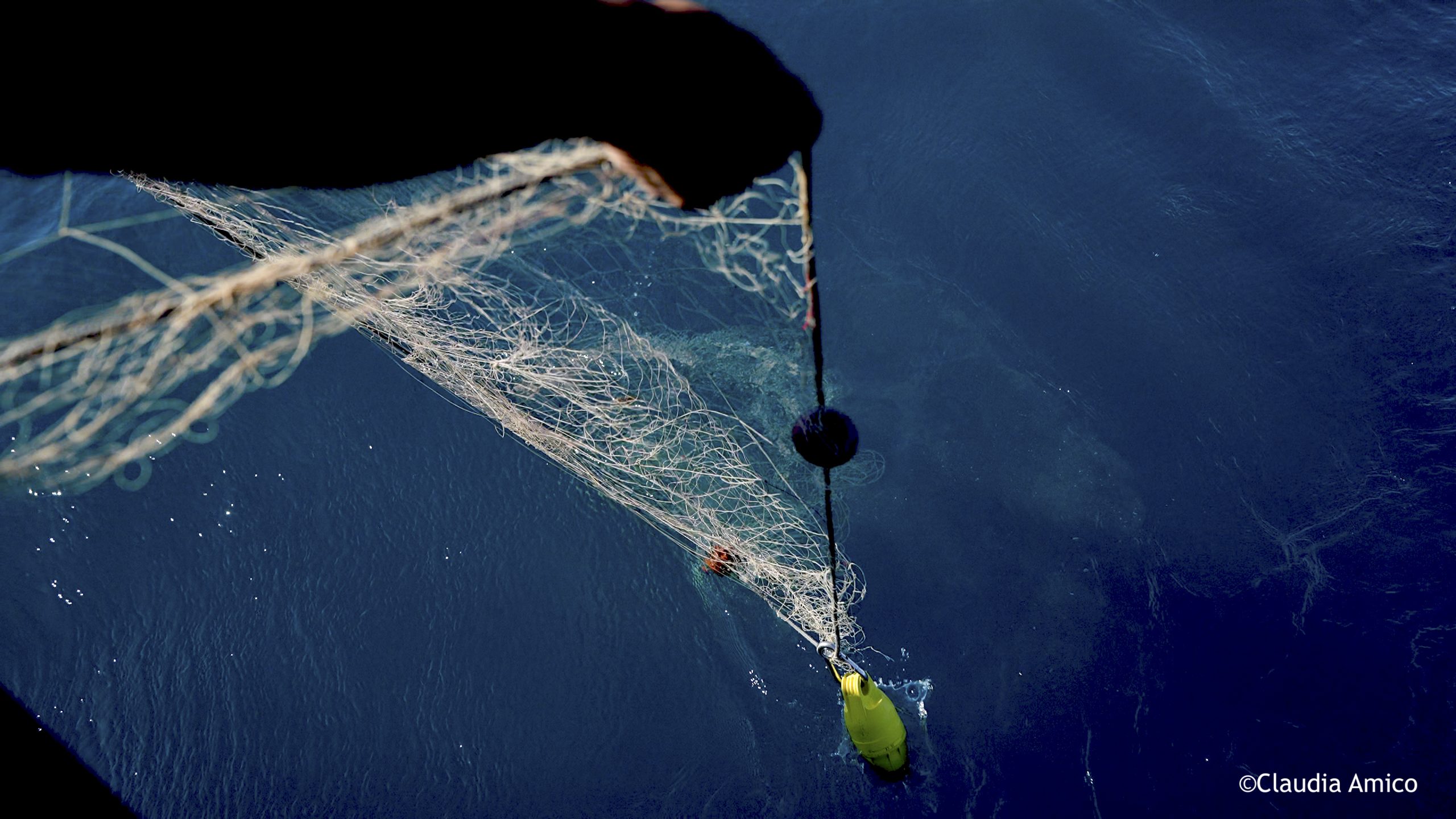On 30 May 2025, fishers from Patti, Sicily (Italy), actively participated in the EU-funded NETTAG+ project to test, for the first time during active fishing operations, the use of MyGearTag acoustic tags and the IRIS Autonomous Underwater Vehicle (AUV) to prevent ghost gear.
Small-scale fishers from the CoGePa cooperative, a NETTAG+ project partner, successfully attached acoustic tags to both ends of a trammel net, a gear type commonly used by the local fishing community. The goal was to assess the system’s effectiveness in real-fishing conditions.
Once deployed at sea, the tagged trammel net was successfully detected by the NETTAG+ surface locator unit and displayed in the MyGearTag app from a horizontal distance of nearly 1.4 km and at a depth of 20 meters. This demonstrated the acoustic tag’s capability to locate gear in case of loss at sea and guide the vessel to it. The system was developed as part of the NETTAG+ project by Newcastle University and Succorfish Ltd.
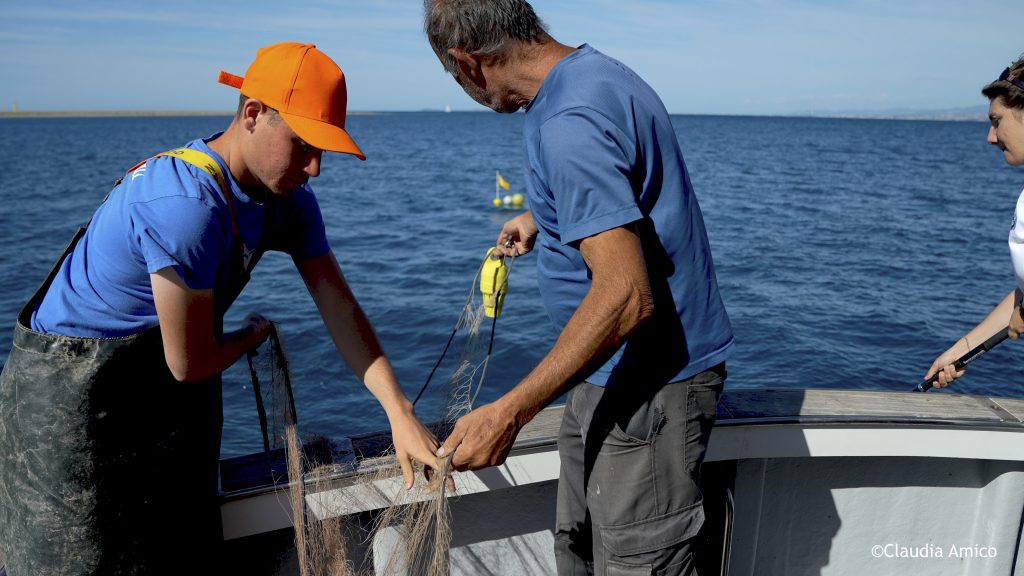
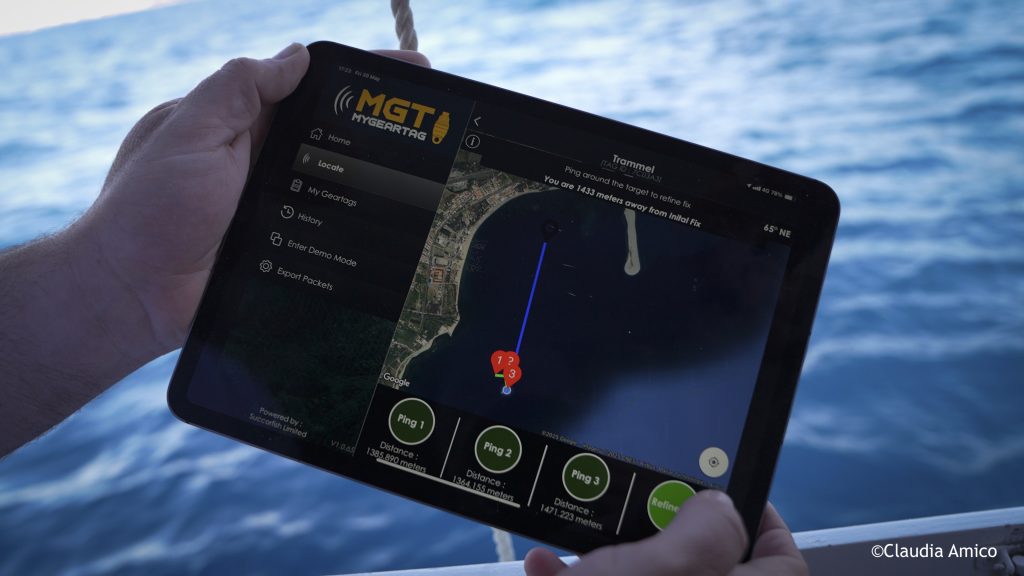
The second phase of testing involved the deployment of the IRIS AUV, designed by robotics engineers at INESCTEC. IRIS is equipped with advanced sonar technology capable of locating lost fishing gear at depths of up to 500 meters, supporting safer and more efficient recovery operations.
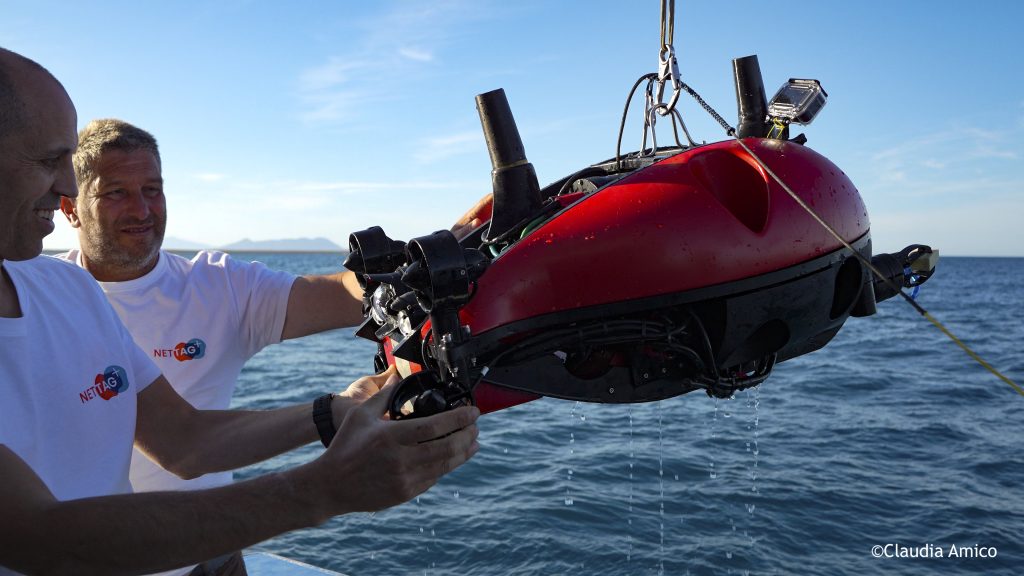
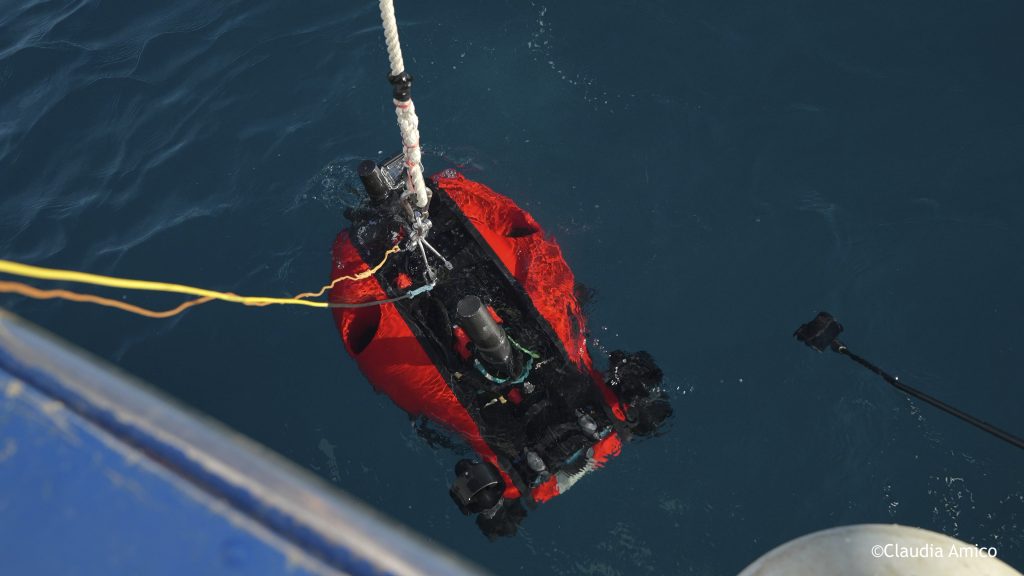
To ensure NETTAG+ technologies have no adverse environmental impact, CIIMAR monitored water parameters, with a multiparametric probe, and measured sound with a hydrophone, during and after the trials.
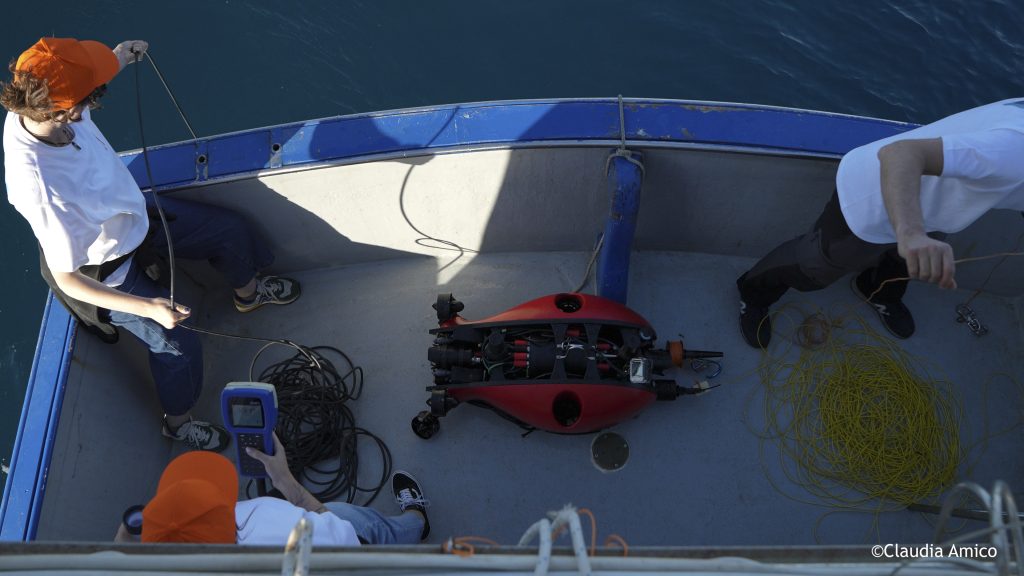
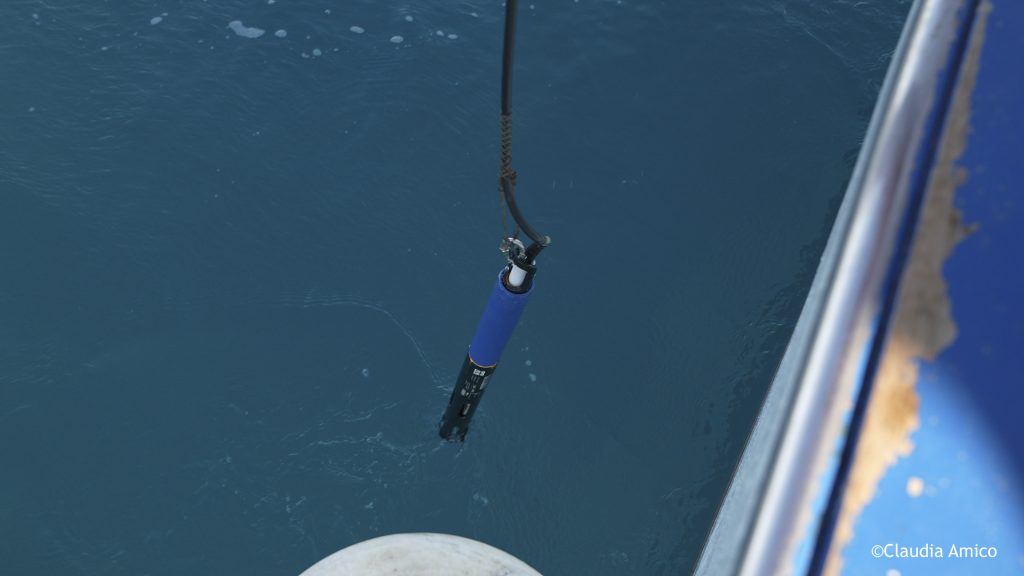
“The NETTAG+ solutions are particularly important for the Mediterranean, where gear loss is not a rare occurrence but a frequent challenge due to deep waters and rocky seabeds”, said Stefania Campogianni, Project Manager at WWF Mediterranean and partner of the EU NETTAG+ project. “Lost gear is both a serious problem for fishers and a threat to marine ecosystems. Through collaboration with fishers, scientists, port authorities, and other stakeholders, we aim to develop practical solutions that ensure lost gear can be quickly located and safely recovered.”
Throughout the trials, fishers and scientists collaborated closely, exchanging knowledge on optimal deployment strategies for the acoustic tags and effective use of the tracking app. This successful field test marks a major milestone in the NETTAG+ project and highlights the power of collaboration between fishers, scientists, and NGOs in tackling marine pollution.
“In the NETTAG+ project, we bring together a multidisciplinary, international team of 15 partners from 7 countries, united by a strong academia-industry collaboration”, said Sandra Ramos, Coordinator of the NETTAG+ project. “We are implementing programs that empower fishers as Guardians and Cleaners of the Ocean, while also co-creating innovative technologies to help them locate lost gear and prevent ghost fishing. Additionally, we are advancing tools to detect and remove Abandoned, Lost or otherwise Discarded Fishing Gear (ALDFG) already present in the ocean.”
Every year, thousands of fishing nets and traps are lost in the ocean. These “ghost gears” continue to entangle marine life, damage habitats, pollute the sea, and jeopardize the livelihoods of fishers.
Testing will continue in the coming months with additional trials in Croatia, Spain, and Portugal, using various types of fishing gear.
The testing took place during the annual meeting of the EU-funded NETTAG+ project in Patti (Sicily) where scientists, fishers, NGOs, and companies came together to discuss how to reduce the risk of ghost gear and protect our marine environments.
